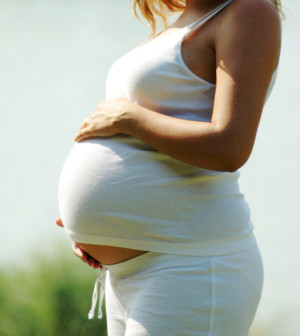- Could Your Grocery Store Meat Be Causing Recurring UTIs?
- Are You Making This Expensive Thermostat Error This Winter?
- Recognizing the Signs of Hypothyroidism
- 10 Strategies to Overcome Insomnia
- Could Artificial Sweeteners Be Aging the Brain Faster?
- Techniques for Soothing Your Nervous System
- Does the Water in Your House Smell Funny? Here’s Why
- Can a Daily Dose of Apple Cider Vinegar Actually Aid Weight Loss?
- 6 Health Beverages That Can Actually Spike Your Blood Sugar
- Treatment Options for Social Anxiety Disorder
Air Pollution Tied to Stillbirth in Small Study

“Suggestive evidence” of a link between air pollution and increased risk of stillbirth is growing, according to a new review.
Wide regional variations in the world’s stillbirth rates suggest most of last year’s 2.6 million stillbirths were preventable, the research team said.
“If the evidence of an association between ambient air population and stillbirth is confirmed in future studies, it would be of major public health importance,” said Marie Pedersen, of the Center for Epidemiology and Screening at the University of Copenhagen, Denmark. She was not involved in the study.
Previous examinations of available research indicated a connection between air pollution and stillbirth risk, but the association was weak. But new evidence has become available, so researchers from the University of Oulu in Finland analyzed three studies from the United States and Asia published up to 2015.
The new review found an association between exposure to air pollution, particularly during the third term of pregnancy, and an increased risk of stillbirth. However, the review doesn’t establish a cause-and-effect relationship, and further research is needed to learn more about this link, the researchers said.
Their findings were published online May 24 in the journal Occupational & Environmental Medicine.
“Stillbirth is one of the most neglected tragedies in global health today, and the existing evidence summarized by [the authors] deserves additional investigation,” Pedersen wrote in an accompanying journal editorial.
Other factors potentially linked to increased risk of stillbirth include obesity, infections, alcohol, occupation and stress, the researchers said.
More information
The March of Dimes has more about stillbirth.
Source: HealthDay
Copyright © 2026 HealthDay. All rights reserved.










